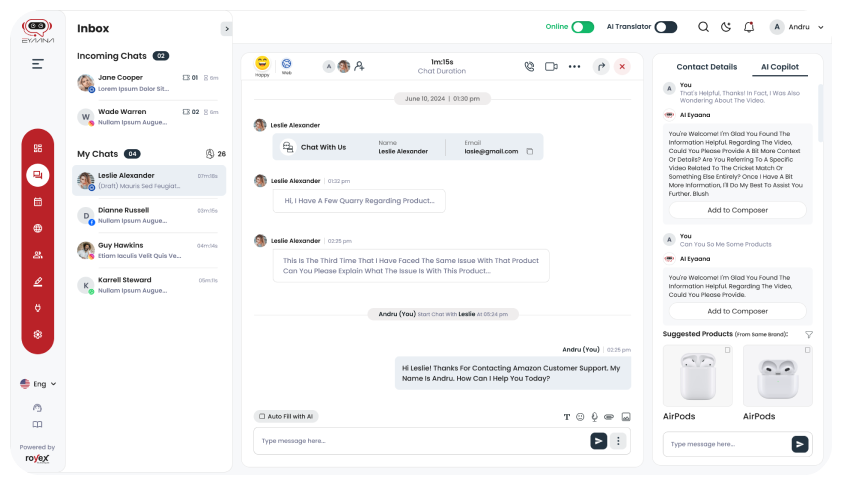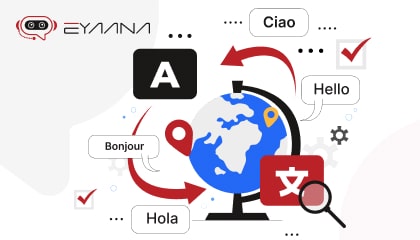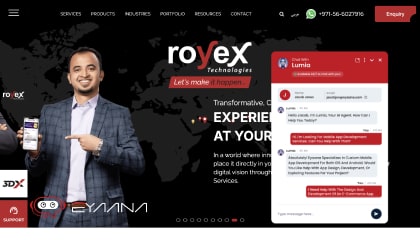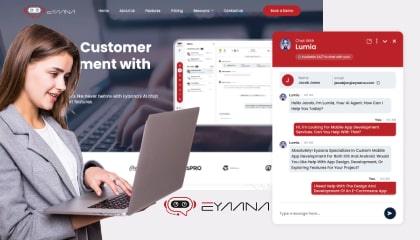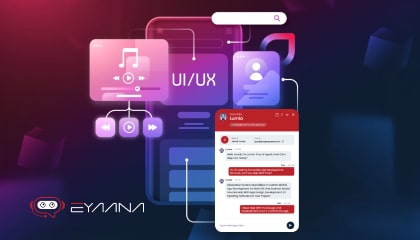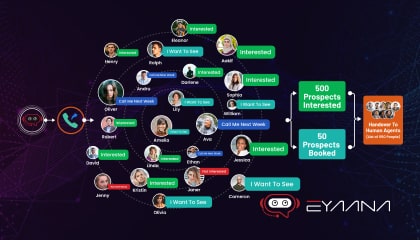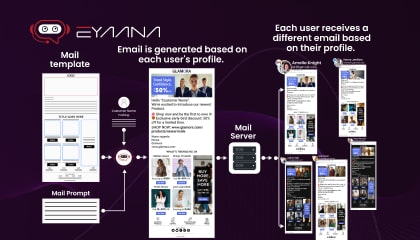Enquiry
Blog Details
Why Multi-Platform Integration is Essential for Modern Customer Support
In today's digital age, customer support has evolved from simple phone calls to a complex network of communication channels. With customers interacting through various platforms—websites, social media, email, and messaging apps—integrating these channels into a unified system is no longer optional but essential. Without a unified system, interactions become fragmented, leading to inefficiencies and customer dissatisfaction. By integrating multiple platforms, businesses can ensure a seamless customer experience, centralize data, and enhance operational efficiency.
Moreover, the way customers interact with businesses is being fundamentally altered by the proliferation of digital channels. No longer are phone calls and emails the only options - support is now being sought through social media, live chat, mobile apps, and more. By customers, it is expected that they will be able to seamlessly switch between these channels while maintaining context and continuity in their support experience.
This expectation can only be met through the implementation of integrated multi-platform systems. When properly executed, information from all channels is consolidated into a single customer view. As a result, a more personalized and efficient support experience can be delivered. Regardless of how a customer chooses to reach out, their history and preferences are instantly made available to support agents.
By unifying data and automating responses through AI, multi-platform systems provide timely, accurate assistance while reducing operational silos. Furthermore, integrating various channels improves customer satisfaction by offering convenient, personalized experiences, crucial for fostering long-term loyalty in an increasingly competitive market.
Enhanced Customer Experience

The need for consistency across all touchpoints is paramount. Customers expect seamless interactions regardless of the platform they choose. Without multi-platform integration, customers often face disjointed experiences, leading to frustration and dissatisfaction. By unifying communication channels, businesses ensure that no matter where or how a customer reaches out, they receive consistent, high-quality support. This consistency significantly enhances customer satisfaction, fostering loyalty and trust.
Efficiency in Operations
Operational efficiency is another crucial benefit of multi-platform integration. With multiple communication channels operating in silos, support teams can become overwhelmed, leading to slower response times and errors. Integrating these platforms streamlines operations, allowing support teams to manage all interactions from a single interface. This not only speeds up response times but also reduces the likelihood of mistakes, as all relevant customer data is centralized and easily accessible.
Data-Driven Decision Making
Moreover, integration facilitates data-driven decision-making. By consolidating data from various platforms, businesses can gain a comprehensive view of customer interactions. This holistic perspective allows for more accurate insights into customer behavior and preferences, enabling businesses to tailor their support strategies more effectively. Additionally, integrated platforms often include advanced analytics tools, which can be used to track key performance indicators (KPIs) and identify areas for improvement.
Scalability and Adaptability
Scalability and adaptability are also critical factors. As businesses grow, so do their customer bases and the complexity of their interactions. A multi-platform integrated system can easily scale to accommodate increasing volumes of customer inquiries across various channels. Furthermore, it can adapt to emerging technologies and new communication trends, ensuring that businesses remain agile in an ever-evolving digital landscape.
Cost-Effectiveness
Finally, from a financial perspective, multi-platform integration can be cost-effective. While the initial investment may be significant, the long-term savings generated by improved efficiency, reduced errors, and increased customer retention far outweigh the costs. Additionally, many integrated platforms offer automation features, such as AI-driven chatbots, which can handle routine inquiries, freeing up human agents to focus on more complex issues.
Benefits of Multi-Platform Integration

The benefits of this approach are numerous and significant. First and foremost, customer satisfaction is often increased. Frustration is reduced when issues do not need to be re-explained across different touchpoints. Additionally, faster resolution times are typically achieved as agents have immediate access to all relevant information.
From an operational standpoint, efficiency gains are frequently realized. Duplicate efforts are minimized, and resources can be more effectively allocated across channels. Valuable insights can also be gleaned by analyzing aggregated cross-channel data. These insights can then be leveraged to continually refine and improve the support experience.
However, the implementation of a truly integrated multi-platform system is not without its challenges. Significant technological infrastructure must often be put in place. Existing systems and data silos may need to be bridged or consolidated. Staff must be trained on new tools and processes. Despite these hurdles, the long-term benefits are generally seen to outweigh the initial investment.
As customer expectations continue to evolve, the importance of multi-platform integration is only likely to grow. Businesses that fail to adapt risk being left behind by more agile competitors. In an era where customer experience is increasingly viewed as a key differentiator, a seamless, integrated support strategy across all channels can no longer be considered optional - it must be embraced as an essential component of modern customer service.
In conclusion, while challenges may be faced in its implementation, multi-platform integration is rapidly becoming a necessity for businesses aiming to deliver exceptional ai customer service. By breaking down silos between channels, a more cohesive, efficient, and satisfying experience can be provided to customers. As technology continues to advance, further opportunities for integration and optimization will undoubtedly be presented. Forward-thinking organizations would be well-advised to stay abreast of these developments and continually refine their multi-platform strategies.
Eyaana, an AI customer service and sales solution, excels in multi-platform integration. It enables businesses to manage diverse communication channels through a single, unified system. Eyaana’s platform allows for seamless coordination between different customer touchpoints, ensuring consistency in interactions and faster resolution times. The platform also leverages AI-driven automation to handle routine inquiries across channels, freeing up human agents for complex issues.
Additionally, Eyaana’s system provides comprehensive analytics, allowing businesses to make data-driven decisions based on customer interactions across all platforms. This integrated approach leads to higher customer satisfaction, increased efficiency, and better scalability as businesses grow. By choosing Eyaana, businesses can stay competitive, meeting customer expectations through robust multi-platform integration.
To explore how AI can enhance your business operations, sign up for free and get started with Eyaana today.
Do you need help?
We will provide detailed information about our services, types of work, and top projects. We will calculate the cost and prepare a commercial proposal.
